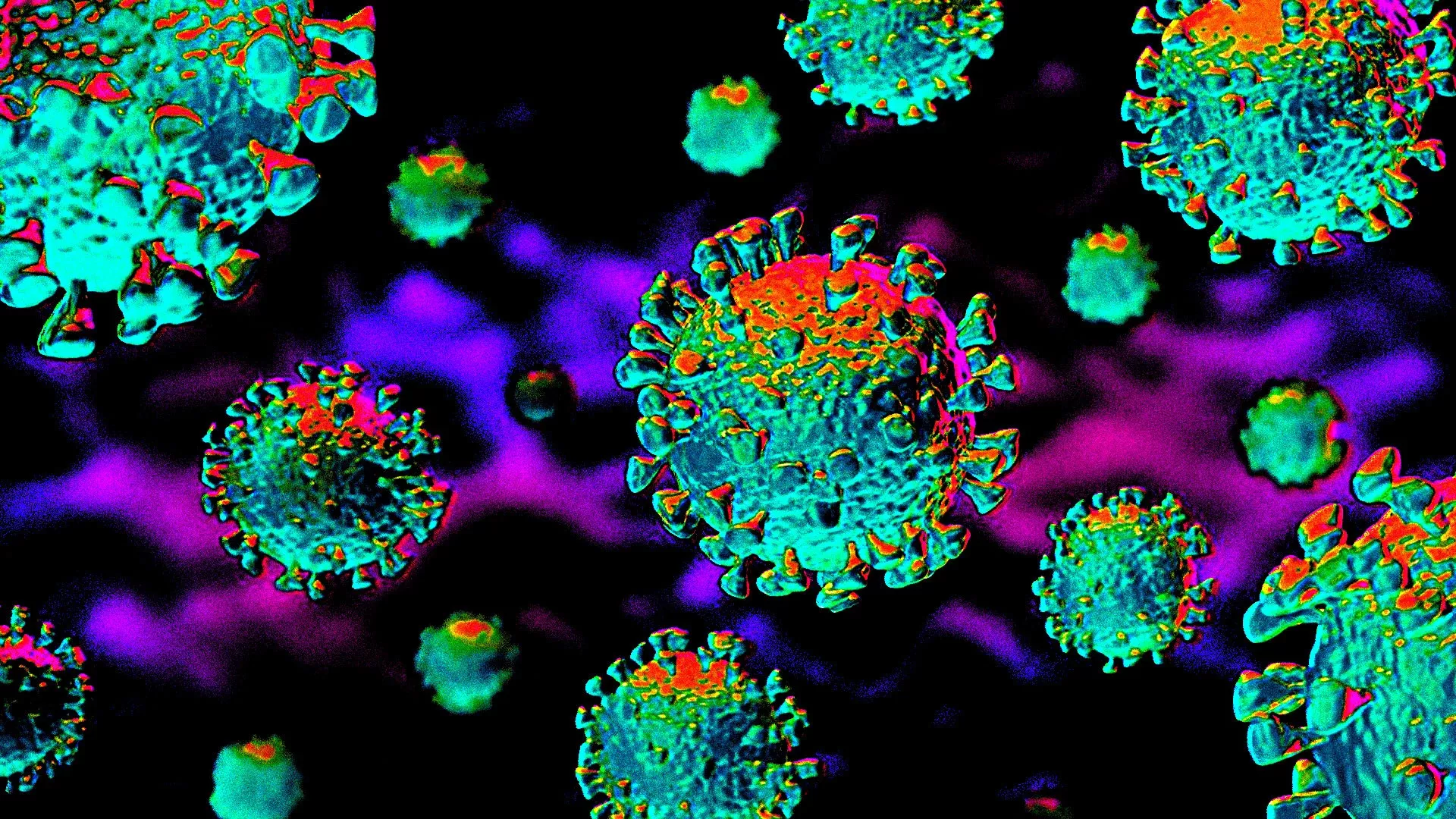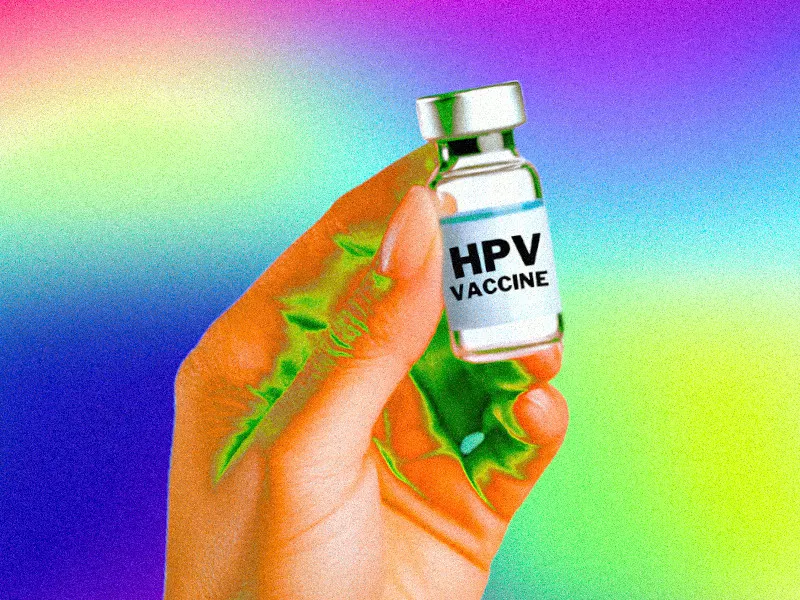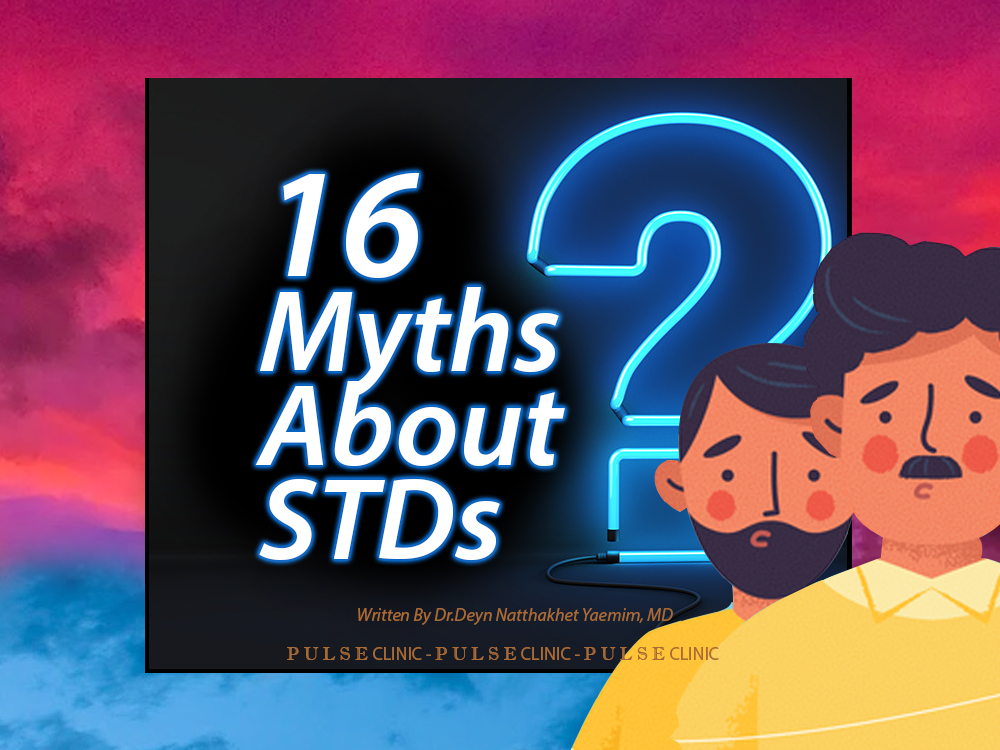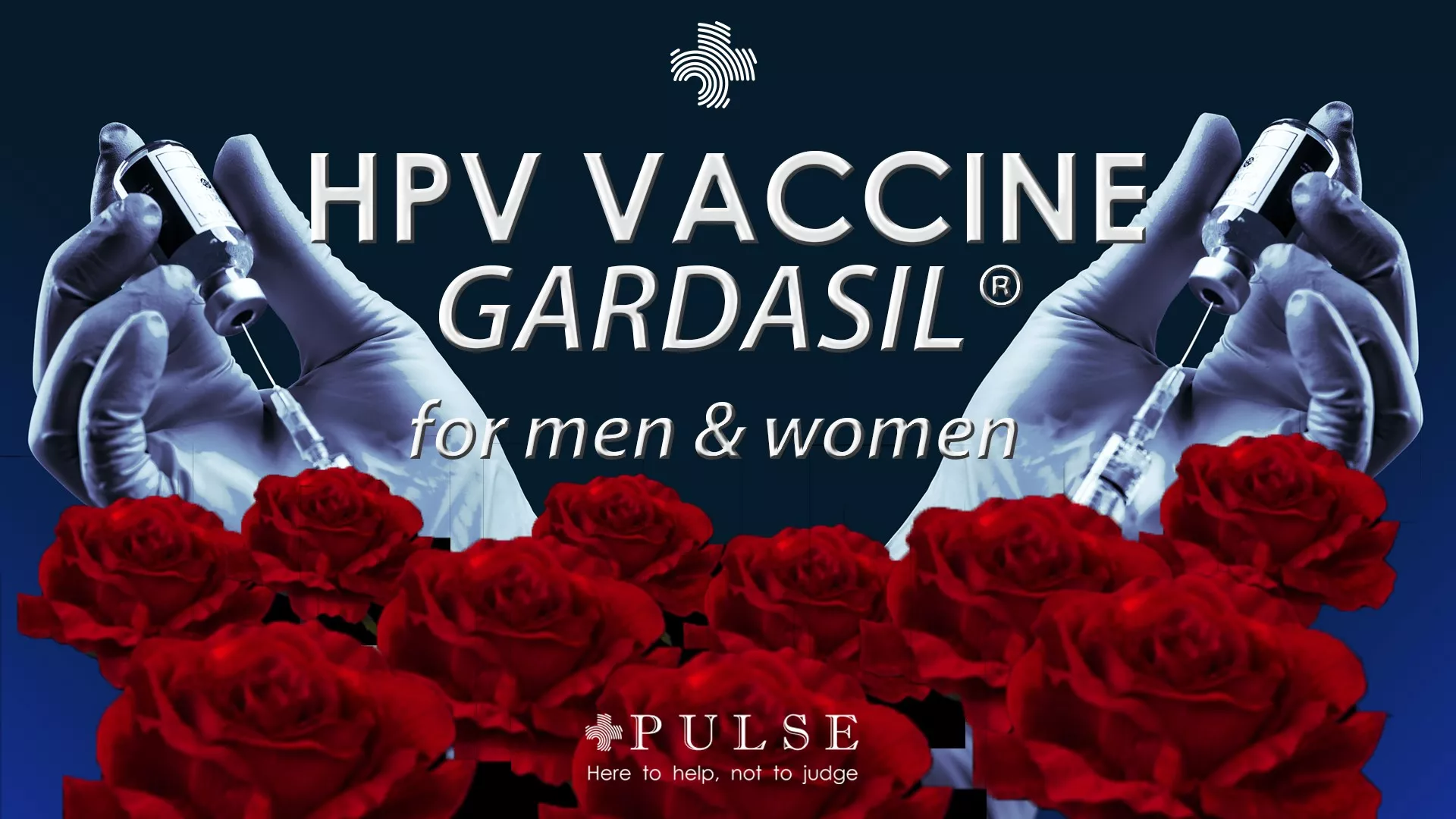HPV Wart Treatment in Bangkok
31476
HPV is very common and you can catch it through intimate sexual contact with another person who already has it.

HPV WART TREATMENT AT PULSE CLINIC BANGKOK
Dr.Deyn | 9 August 2019, reviewed and updated on 9 March 2021
Removing genital warts helps lower the risk of spreading the virus, relieves any pain or discomfort, and can help prevent serious issues like cancer. Some warts may go away on their own, but treatment is usually advised to manage the infection and feel better. Boost your confidence, getting genital warts removed today!
Genital Warts Removal at PULSE Clinic
| Treatment | Services | Price |
| HPV Warts Removal | Trichloroacetic acid (TCA) Treatment | Starts at 800 THB* |
| Cryotherapy** | Starts at 3000 THB* |
*Cost may be vary depends on the symptoms. Come visit us for a consultation for more information about the treatment plan that suit you the best. Doctor consultation (800 THB) not included.
**Currently available only at PULSE Clinic Silom and PULSE Clinic Nana
Get Treated for Genital Warts Today!
Contact us at info.bkk@pulse-clinic.com or chat on your preferred platform:
![]() +66 65 237 1936
+66 65 237 1936  @PULSEClinic
@PULSEClinic ![]() PulseClinic
PulseClinic
What are Genital Warts (HPV Warts)?
Genital warts are a common STI caused by certain types of human papillomavirus (HPV). They usually appear on the genitals, pubic area, or around the anus, one to eight months after exposure. Warts may itch, burn, or cause mild discomfort, though they’re often painless. While HPV often has no symptoms, it can increase the risk of cancer in the infected area.
When Do Genital Warts Develop?
It may take weeks, months, or years after exposure before warts develop. Sometimes there are asymptomatic carriers of HPV that can infect others. Hence, genital warts may not necessarily translate to unfaithfulness of your partner in some instances, it could be that complicated.
How are Genital Warts Diagnosed?
The diagnosis can be made clinically by the doctor by taking history, especially your sexual history, and performing a physical examination. The doctor often makes a “spot diagnosis” by observing your perianal area for visible warts.
For women, a full pelvic examination is performed with a pap smear from the cervix taken for further investigation to rule out cervical cancer.
For both males and females, an instrument called a proctoscope may be introduced into your rectum for examination and to take samples for investigations.
Treating Genital Warts
Genital warts can be treated in different ways, such as with creams, freezing, laser, or minor surgery. However, treatment only removes the visible warts, not the virus itself. The immune system usually clears the virus over time. Removing warts causes tissue damage and inflammation, which can activate the immune system. This immune response helps the body identify and eliminate both the virus and the affected wart cells.
How Does Genital Warts Treatment Works?
Topical cream: Creams for genital warts work in two main ways: some boost the immune system to fight the virus, while others destroy the wart tissue directly. For example, imiquimod helps the body attack the virus, and podophyllotoxin stops the wart cells from growing, causing them to die and fall off.
Cryotherapy: Cryotherapy removes genital warts by freezing them with liquid nitrogen. This causes the warts to blister and fall off as the skin heals. It’s effective for clearing visible warts, but it doesn’t get rid of the HPV virus.
Trichloroacetic acid (TCA) treats genital warts by burning and breaking down the wart tissue. It destroys the cells, causing the wart to die and eventually disappear.
It's important to remember that each treatment option may take several weeks to remove all visible warts. How long treatment takes and how effective it is depends on your symptoms. Visit our doctor for a consultation to find the best option for you.
Can Warts Come Back After the Treatment?
Yes, genital warts can come back after the treatment. While the treatments removing the visible warts, the underlying HPV virus may still remain in the skin. Because of this, new warts can appear later, especially if your immune system hasn’t fully cleared the virus. Recurrences are common, so follow-up treatments and good care are important to manage them.
Preventing Warts After Cryotherapy
To prevent more HPV warts after cryotherapy, support your immune system with healthy habits, avoid skin-to-skin contact in affected areas, monitor for new warts, treat them early, and consider getting the HPV vaccine if eligible. Regular follow-ups with your doctor can also help catch recurrences quickly.
- Strengthen your immune system by eating well, exercising, sleeping enough, managing stress, and avoiding smoking.
- Avoid skin-to-skin contact in infected areas: use condoms or dental dams during sex, don’t share personal items like razors or towels, and wash hands after touching warts.
- Regularly check for new warts and treat them early to prevent spreading.
- Consider getting the HPV vaccine if under 45 and not vaccinated to protect against other HPV types.
- Follow up with your healthcare provider to monitor and catch any recurrences early.
Trust PULSE CLINIC to take care of your health like other 45000 people from over 130 countries. We provide discreet professional service with high privacy. Here to help, not to judge.
What's HPV and How Does It Spread?
HPV is very common and you can catch it through intimate sexual contact with another person who already has it.
There are over 200 types of HPV. Because it's so common, most people will get infected at some point in their lives.
People are often infected without knowing it as there are usually no symptoms and infections tend to go away on their own.
HPV is the most common sexually transmitted infection. HPV is spread mainly by skin-to-skin contact, not just anal and vaginal and oral sex.
Genital HPV infections are highly contagious and usually associated with sexual contact. Nearly all sexually active people get infected with HPV at some point in their lives. The risk increases with the number of sexual partners you and/or your partners have.
What Diseases Can HPV Cause?
HPV infections that persist can lead to cancers – anal, throat, and penile (penis) cancers in men, and cervical cancer in women.
HPV types 16, and 18 are the major causes of cervical cancer and are the main cause of HPV-associated cancers in males and females such as
- Anus and back of the throat, including the base of the tongue and tonsils (oropharynx), in both women and men.
- Penile cancer in men.
- Cervix, vagina, and vulva in women.
HPV types 6, and 11 are the main causes of anal wart and genital warts.
HPV types 31, 33, 45, 52, and 58 are 15% cause of cervical cancer.
Human Papillomavirus (HPV) Testing
HPV Testing
HPV testing detects high-risk types of the human papillomavirus associated with cervical cancer. It's often done alongside a PAP smear, especially for women over 30, using cervical cell samples.
Item | HPV DNA Hybribio 21 Genoarray for Women | HPV DNA Hybribio 21 Genoarray for Men |
Specimen collection | Cervical PAP smear Anal PAP smear | Anal PAP smear Urethral PAP smear Urine Specimen |
Genotype tested | 21 Types High risk: 16,18,31,33,35,39,45,51, 52,53,56,58,59,66,68 Low risk: 6,11,42,43,44,81 (CP8304) | 21 Types High risk: 16,18,31,33,35,39,45,51, 52,53,56,58,59,66,68 Low risk: 6,11,42,43,44,81 (CP8304) |
Waiting time & Price | 10 working days 4150 THB | Urine HPV DNA 21 3550THB 15 working days Anal PAP smear HPV DNA 21 Urethral PAP smear HPV DNA 21 4150THB 10 working days |
Doctor Examination | Included | Included |
Doctor fee | Included | 800 THB |
Add-on ThinPrep test | - | 1550 THB |
*** Please make an appointment in advance for your convenience and speed of getting the examination
Book Your HPV Testing Today!
Contact us at info.bkk@pulse-clinic.com or chat on your preferred platform:
![]() +66 65 237 1936
+66 65 237 1936  @PULSEClinic
@PULSEClinic ![]() PulseClinic
PulseClinic
Can Genital Warts Be Treated?
Yes. A variety of treatments are available for established cases of genital warts. The following are treatment options on how to get rid of genital warts:
- Podophyllotoxin, 0.5% solution or 0.15% cream. Apply twice daily for 3 days, followed by 4 days’ rest, for up to 4 weeks. It is suitable for home treatment of external warts. Rub Vaseline or petroleum jelly at the base of the warts before rubbing the cream to avoid burns. Podophyllin should not be used in pregnant women.
- Imiquimod cream applied 3 times weekly (and washed off after 6-10 hours) for up to 16 weeks is also suitable for external warts. Contraindicated in pregnancy)
- podophyllin and imiquimod creams are home remedies for getting rid of genital warts.
- Cryotherapy which involves freezing the warts with liquid nitrogen is also a treatment modality, but the recurrence rate is high.
- Surgery can be used for genital warts removal. This is done under local or general anesthesia
- Electrocautery, involving cutting the warts with electric current is a treatment option for warts. It is now discarded because of the risk of inhalation of HPV associated with it. An inhaled HPV fume/smoke can cause laryngeal carcinoma to the doctor and staff in the treatment room if the treatment room doesn't have a proper ventilation system.
Does PULSE Bangkok Provide Anal Wart or Genital Wart Treatment?
Of course, PULSE CLINIC provides treatment for anal warts and genital warts as well as warty lesions in other area of the body, Book an appointment for an STD test and treatment or Consultation.
We use podophyllin or trichloroacetic acid (TCA) following sexually transmitted infection treatment and prevention guidelines.
Chemical cautery with a solution of 60 to 90 percent trichloroacetic acid (TCA) is most effective when treating a few small, moist lesions.
Trichloroacetic acid (TCA) kills genital warts by destroying the proteins in the cells. TCA also can destroy normal cells, which is why you need a careful application by a well-trained doctor. A doctor applies TCA once a week. Only the wart must be treated to avoid irritation to surrounding normal tissue.
How Well Does It Work?
Studies show that TCA treatment can remove warts in up to 80 out of 100 cases after 6 weeks of treatment, depending on the size and location of lesions.
TCA is most effective on small, moist areas of warts.
What are the Side Effects of Treatment?
TCA usually causes several minutes of mild to moderate discomfort at the site where it is applied. The medicines are not absorbed easily by the body. So it may cause local skin irritation but not whole-body (systemic) side effects. It is hard to control how deeply the acid penetrates the skin. If the acid burns too deeply, you may have pain, skin irritation, and ulcers that will heal. Common side effects of this medicine include: Burning. Swelling of the area where medicine is applied. Tenderness of the skin.
What Else Do I Need to Know?
If large areas of warts are being removed and multiple treatments are needed, doctors may not recommend TCA treatment because of the pain and burning. Genital warts may go away on their own. Treating warts may not cure infection with human papillomavirus (HPV), the virus that causes genital warts. The virus may remain in the body in an inactive state after the warts are removed. A person treated for genital warts may still be able to spread the infection. Condoms may help reduce the risk of HPV infection. The benefits and effectiveness of each type of treatment need to be compared with the side effects and cost. Discuss this with your doctor.
Can HPV Infection be Prevented?
Condoms don't guarantee protection from infection. This is because HPV can be transmitted by skin contact with areas not covered by condoms.
One of the best ways to protect yourself from HPV infection is to get the vaccine. The vaccine protects against 4 types of HPV (types 6, 11, 16, and 18) that can cause cancer and genital warts.
HPV Vaccine
When to Start?
As soon as possible. In October 2016 ACIP recommended HPV dosage according to age starting the first dose.
9v HPV vaccine (9vHPV, Gardasil®9, Merck&Co.) has been licensed by the USFDA to be used among males and females since December 2014. in February 2015, the Advisory Committee on Immunization Practice (ACIP) recommended that Gardasil®9 used for cancer prevention among males and females. It is widely used for prevention in developed countries.
- Age less than 15 years old: 2-dose regimen (day 1 and month 6)
- Age above 15 years old: 3-dose regimen (day 1, month 1-2, month 6)
- Immunocompromised people such as HIV-infected patients: 3-dose regimen (day 1, month 1-2, month 6) regardless of age
Gardasil 9
9v = nonavalent HPV vaccine (Gardasil®9, HPV 6, 11, 16, 18, 31, 33, 45, 52, 58)9v HPV vaccine (9vHPV, Gardasil®9, Merck&Co.) has been licensed by the USFDA to be used among males and females since December 2014. in February 2015, the Advisory Committee on Immunization Practice (ACIP) recommended that Gardasil®9 used for cancer prevention among males and females. It is widely used for prevention in developed countries.
Book Your HPV Vaccine Today!
Contact us at info.bkk@pulse-clinic.com or chat on your preferred platform:
![]() +66 65 237 1936
+66 65 237 1936  @PULSEClinic
@PULSEClinic ![]() PulseClinic
PulseClinic
Trust PULSE CLINIC to take care of your health like other 45000 people from over 130 countries. We provide discreet professional service with high privacy. Here to help, not to judge.
Loading...
Clinic Locations
Loading...












